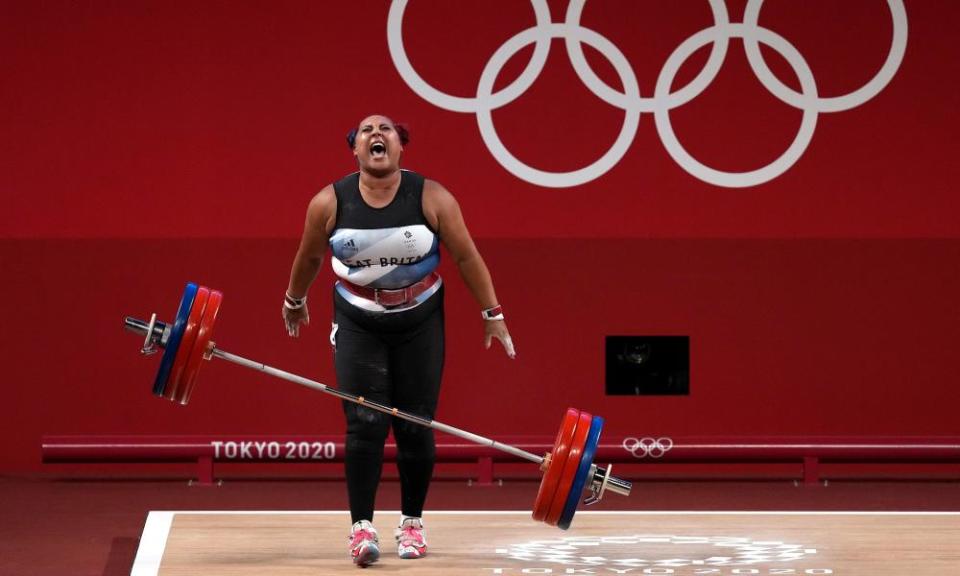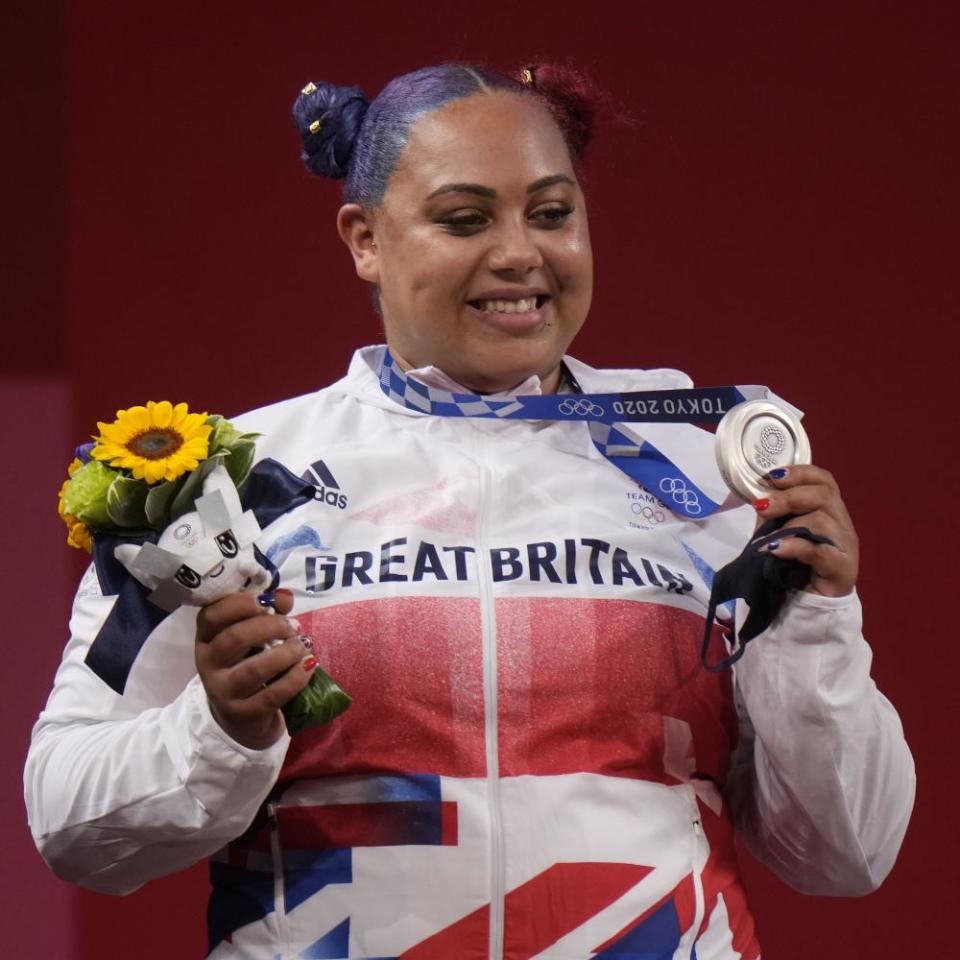Weightlifter Emily Campbell: ‘My legs were jelly… I’d achieved everything I’d dreamed of’

Even by weightlifting standards, Emily Campbell’s silver medal-winning lift at the Tokyo Olympics was a striking piece of Olympian theatre. With her hair in two Team GB-themed blue and red buns, she completed the lift, dropped the 161kg weight, then fell to her knees, letting out a tearful scream.
“I don’t know where that came from,” says Campbell, 27, chatting to me over the phone. “When I fell to the floor it was genuinely because my legs were like jelly… It was massive emotion really: relief, pure excitement, joy, it was just a lot to think I’d managed to achieve everything I’d always dreamed of.”
Just being a great athlete is not enough: I need to give back
Campbell made sporting history, winning the first ever Olympic medal for British female weightlifting, and Britain’s first weightlifting medal since 1984. In her remarkable year, she also won gold at the European Championships in Moscow. As we talk, Campbell, snuffling, nursing a cold, is animated and open, talking about the struggle to get to the Covid-threatened, once-postponed Olympics, and the “amazing” atmosphere of the Olympic Village: “You’re around so many athletes from so many different sports, countries, cultures, it was so nice to be part of something so special.” Were her distinctive red and blue hair buns about Team GB spirit? “Definitely, we’re one team, and every single person had every single person’s back.”
While things are more stable now, Campbell endured the usual athlete’s struggle for funding, including working as a receptionist at the physio clinic that now treats and sponsors her. Growing up in Nottinghamshire (her younger sister, Kelsie, is also an athlete, swimming on a US college scholarship in Florida), Campbell’s parents supported all her pursuits, whether in sport (she has a sports science degree) or the arts; she enjoyed singing, dancing, and acting. “I sing in the gym now, that’s enough,” she laughs.

As a woman in the over-87kg weightlifting category, Campbell is an outspoken advocate for body positivity: “When I won the European Championships, the video was posted and a couple of people commented: ‘Did the fat one win?’” She sighs wryly. “I don’t look like the typical athlete: lean, with abs. My body type is for my sport. I need to be the strongest I can be.” One of her ambitions is to design a range of stylish plus-size gym wear: “There’s that opinion that you can’t be feminine if you’re big and strong. I beg to differ. I’m very feminine, and I’m 6ft and 125 kilos.”

Campbell takes pride in her Jamaican-English heritage and, in Tokyo, she wore boots adorned with black consciousness-raising motifs designed by a friend: “It was my way of showing the world that I stand with everybody together. It’s something we need to keep talking about.” As well as showcasing weightlifting on television programmes such as Blue Peter, she uses her platform to do community work, including visiting schools, to inspire all children, but particularly those of colour: “Just being a great athlete is not enough – I need to give back,” she says simply.
One of Campbell’s inspirations is tennis champion Serena Williams: her attitude, her athleticism. “She’s phenomenal. People say she’s one of the best female athletes; she’s one of the best athletes on the planet, period.” Campbell also found her Team GB teammates inspiring, and vividly remembers British BMX riders Beth Shriever and Kye Whyte returning to the Olympics Village food hall with their medals, gold and silver respectively. “Everybody gave them a standing ovation… every time somebody won a medal, it gave everybody energy.”
What about those sacrifices Campbell mentioned earlier – do they include relationships, a social life, any kind of life? Right now, she’s focusing on forthcoming weightlifting events, the World Championship, the European Championships, where she’ll defend her title, the Commonwealth Games and, eventually, qualifying for the Paris 2024 Olympics. She confirms that it’s all-consuming, that she has to carefully consider everything from nights out to diet to how often she sees friends and family: “You have to sacrifice a lot,” she says, but she’s not complaining: “I can do all the fun things – stay up to whatever time, eat and do whatever I want – when I retire, that’s the way I look at it.”

 Yahoo Finance
Yahoo Finance 